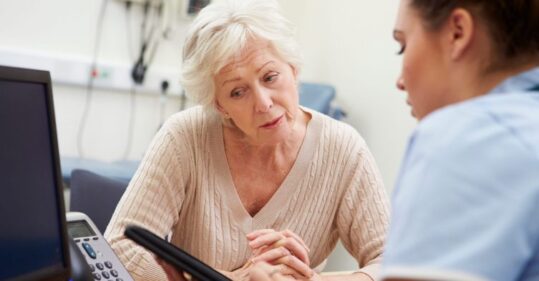Doctors’ union calls for clarity over face-to-face GP appointment guidance

The BMA has called for an urgent meeting with the health secretary to seek clarity regarding face-to-face GP appointment advice, Nursing in Practice’s sister title Pulse has reported.
The doctors’ union made a number of demands in a letter to Matt Hancock, Pulse wrote yesterday, and called for renewed Covid funding for practices as well as an ‘end to directive letters’.
It comes after NHS England sent letters to GP practices last week saying patients must now be offered face-to-face appointments if that is their preference. It later confirmed that the only reason for refusal should be if the patient is deemed an infection risk.
Related Article: NHS 10-year plan: What does it mean for nursing?
GPs responding to NHS England’s new guidance branded it ‘tone deaf’ and ‘badly judged’, while the BMA said the guidance was not contractually binding. Although, in a comment in The Times yesterday, NHS England claimed the Royal College of General Practitioners umbrella-body had backed the moved.
An NHS England spokesperson told the newspaper: ‘NHS guidance, making sure that patients can access face-to-face appointments, has been widely welcomed by patient groups as well as GPs themselves, including GPs’ own Royal College.’
BMA GP Committee chair Dr Richard Vautrey wrote to Mr Hancock yesterday requesting an ‘urgent meeting’ over NHS England’s letter – which he said showed ‘a worrying disconnect with the reality facing general practice’, Pulse reported.
Dr Vautrey’s letter said that practices and GP out-of-hours services ‘do not feel supported by the Government or NHS England’.
It added: ‘Growing numbers of practices are reporting that their staff are being verbally, and at times physically threatened with abuse. We risk losing much needed and dedicated staff as a result.
‘This is completely unacceptable and should be condemned by yourself, wider government and NHSEI in the strongest possible terms.’
Related Article: Funded nurse workforce plan needed for neighbourhood health services
Practice nurses have also reported being abused by patients, although they have continued to do a lot of face-to-face appointments during the pandemic, such as vaccinations. Practice nurses have also reported to Nursing in Practice that telephone triaging has started to add to their workloads as patients often tell them about multiple issues during calls.
Dr Vautrey’s letter called for ‘an end to directive letters, and instead practices and other GP services must be allowed to deliver patient care in the most appropriate manner, meeting the reasonable needs of their patients and based on their knowledge of their local communities’.
He added that the Government must provide ‘a clear statement from the chief medical officer (CMO) about when it is safe and appropriate to remove social distancing measures and when to use PPE for face-to-face consultations in GP premises’.
Other demands included a suspension of the voluntary Quality and Outcomes Framework (QOF) incentive programme, a commitment to fund premises development to ‘improve ventilation and space in waiting areas’ and an end to routine Care Quality Commission regulatory inspections and removal of other ‘unnecessary bureaucratic burden’.
Related Article: Over one million children living in homes causing asthma and chronic illness
Asked about face-to-face GP practice appointments in a House of Commons debate on Monday, Mr Hancock pointed to NHS England’s letter saying it had ‘reiterated’ that ‘it is important to offer a face-to-face consultation for a patient who really wants one while also using technology where that is the most clinically appropriate thing to do’.

See how our symptom tool can help you make better sense of patient presentations
Click here to search a symptom




